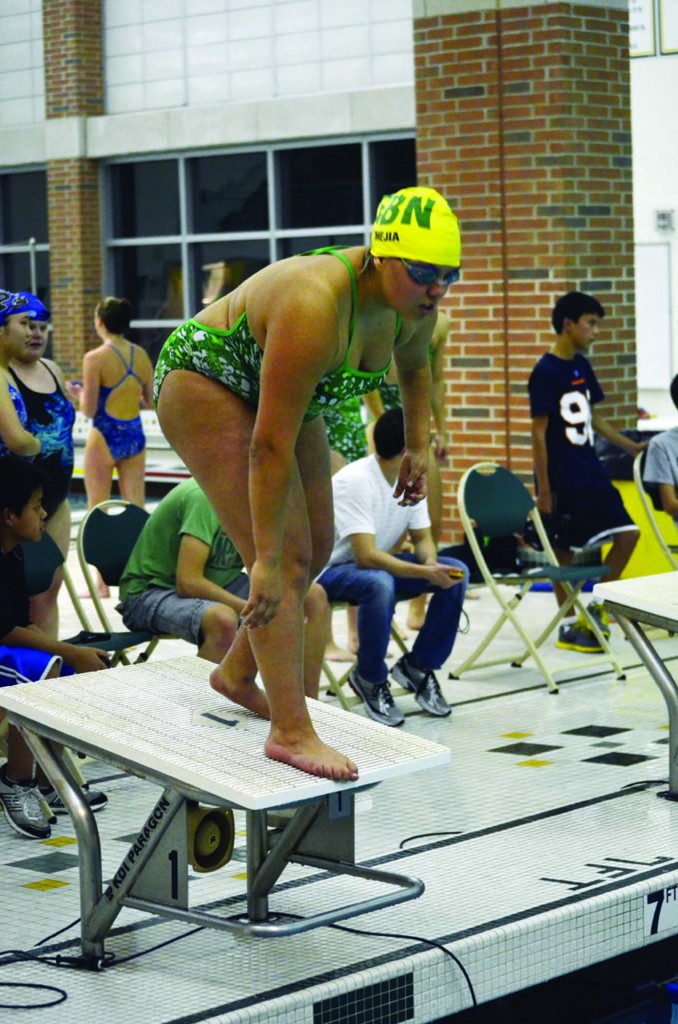
Junior Phoebe Mejia’s only rival in the pool is the clock.
As a swimmer with cerebral palsy, Mejia will have a chance this year to compete in the new Illinois High School Association state swim meet events for athletes with physical/visual disabilities on Nov. 17 at Evanston Township High School. In order to participate, she needed to make the qualifying times that were based on the standards set by Wheelchair and Ambulatory Sports, USA.
According to Mejia’s aunt Amy Alcorn, the family learned about the new division of the state swim meet early in the swim season after reading an article in the Chicago Tribune about Mary Kate Callahan, disabled Fenwick High School swimmer, who pushed for its creation. Mejia then contacted the swim coaches about the possibility of her competing in the new division, and soon she was registered and began training.
Mejia qualified for the four events designated for disabled swimmers at the state meet including the 200 yard, 100 yard, and 50 yard freestyle, and the 100 yard breaststroke.
She began swimming at 4 years old as an exercise to help strengthen her left arm and leg. Mejia enjoyed the sport and began swimming club while she was living in Boston and Washington, D.C.
Mejia adjusted to swimming with a disability in club practice by using techniques like wearing a flipper on her left foot to remember to kick with that leg. After moving to Northbrook last year, she continued to work on her stroke with junior Varsity Coach John Fournier in order to swim competitively.
“Before, she was keeping both arms above her head,” said Fournier. “Now we got her to tuck her weaker arm down at her side and keep one arm over the head so she isn’t plowing the water. She is much more streamline now.”
Even if she feels that she does not have time, Mejia continues her training on weekends with the help of her aunt and uncle to prepare for the state meet.
Fournier said Mejia’s competitive nature is what helps her be a success in the pool despite her disability.
“She gets mad at herself if she doesn’t make a certain time or has trouble with a set,” Fournier said.
Teammate Mary Chirawong Dilig remembers one practice in particular where Mejia displayed her competitive nature.
“One of the biggest events that she had to do was she had to make a time for state,” said Chirawong Dilig. “Coach was pushing her really hard, but she couldn’t do it. So at the end practice, if we wanted to leave 10 minutes early, she had to swim this lap in a certain amount of time. She didn’t think she could do it, but she swam it and made it. Her time was 10 seconds under. We were all really proud of her, and we all started cheering. I dove into the pool and tackled her in a hug.”
Mejia plans on continuing her training after the state meet in order to accomplish her goal of making the Paralympics in Rio de Janeiro, Brazil in 2016.
“I’ve mapped it out over the next four years to make this goal,” said Mejia. “It is 43 seconds to qualify for the 50 free and I’m at 48 [seconds]. So over the course of four years, I’m going to make it.”

